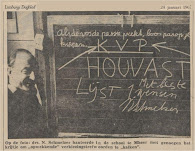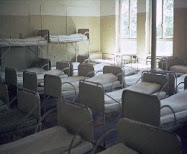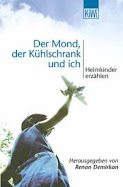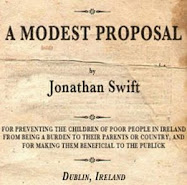
onder bevele van my voorgeslagte was jy besit
had ek taal kon ek skryf want jy was grond my grond
maar my wou jy nooit
hoe ek ookal strek om my neer te lê
in ruisende blou bloekoms
in bees wat horings sak in Diepvlei
rimpelend drink die trillende keelvel
in tafsytossels in leksels gom
in doringbome afgegly na die leegtes
mý wou jy nooit
my verduur kon jy nooit
keer op keer skud jy my af
rol jy my uit
grond, ek word langsaam naamloos in die mond
nou word geveeg om jou

beding verdeel verkamp verkoop versteel verpand
ek wil ondergronds gaan met jou grond
grond wat my nie wou hê nie
grond wat nooit aan my behoort het nie
grond wat ek vergeefser as vroeër liefhet
Day of the African child: the unending plight of African children
Nairobi, June 16th 2009: Africa observes the Day of the African Child, in memory of, thousands of black school children who were maimed and killed in 1976 Soweto uprising, as they took to the streets to protest the inferior quality of their education and to demand their right to be taught in their own language.
To honour the memory of those killed and to meet the Millennium Development Goals relating to the welfare and safety of African children, the UN Millennium Campaign Calls on African states, Civil Society Organizations and the private sector to tackle child and maternal mortality, school dropout, gender inequality in UPE and poor quality standards of UPE.
As many as 50,000 African children under the age of 5 years will be losing their lives as a result of preventable or curable diseases. And children as many as 38 million of primary school age in Africa will still remain out of school.
“Child survival, protection and development are not only universal aspirations enshrined in the MDGs, they are also human rights issues ratified in the International Convention on the Rights of Children and the African charter on the rights and welfare of the child” Says the UN Millennium Campaign Communications Coordinator and Acting Deputy Director for Africa, Ms. Sylvia Mwichuli.
“Investing in the health and education of African children and their mothers is a sound economic decision and one of the surest ways for a country to secure its future. Reducing child mortality and ensuring Universal Primary Education, requires strong political commitment.”
She quipped.
From Sierra Leone to Ethiopia, Angola to Mozambique, an average of more than 1 in every 4 children die before the age of five. In Liberia, Mali, Chad, Equatorial Guinea, the Democratic Republic of Congo and Burkina Faso, the figure is more than one in every five children.
Even Africa's biggest and most developed countries scores of children die before their fifth birthdays: in Nigeria 191 of every 1,000 children die by the age of five, in Botswana it is 124 and in Kenya it is 121.
To compound the situation further, while official reports indicate that Children are now better off than they were ten years ago and can look forward to living beyond the age of 5, their mothers still die while bearing them consequently denying them parental care.
Whether it’s the mother or her baby that dies-life shouldn’t be lost in avoidable circumstances: no mother wants to produce a child for death to grab nor any baby would wish to grow up an orphan, or come to life at the expense of the mother’s life.
An African child who lives beyond his/her fifth birth day and make it into school going age; hunger, disease, discrimination and inadequate facilities deny her/him a chance to enroll and stay in school.
Although official reports- like the UN Millennium Development Goals 2008 report shows that there is widespread progress in primary school enrollment, user fees, such as uniform, stationary and meals, armed conflict, lack of birth registration, child labour and HIV/AIDS still keep around 38 million African children of primary school age out of school. The conditions are more devastating for girls, the higher they climb the ladder of education the wider the rate of dropout.
According to the UN Millennium Campaign, Policy Associate, Thomas Deve, “To ensure that more vulnerable and marginalized are enrolled and remain in school, targeted programs and interventions aimed at poor households such as setting up satellite schools in remote areas, eliminating school fees, providing school meals, constructing separate sanitation facilities, ensuring a safe school environment and promoting later marriage must be designed and implemented across countries that lag behind on these MDGs targets.”
Time and again, it has been proven that when political commitment is present, the results are often significant. Countries like Rwanda, Malawi, Zambia, Uganda, Kenya and Ghana are good cases. Malawi for example has moved from a hungry country that it has always been to a regional food supplier in recent years. It is also only second to Costa Rica globally in reducing child mortality by more than 1/3 in the past three years!
Zambia has made great strides in HIV testing, prevention, and education after president Mwanawasa declared a national emergency in 2004. By the end of the year, he had surpassed his goal of providing 10,000 citizens with antiretroviral treatment (ART). The government has also focused on integrating HIV/AIDS education into the public school curriculum.
When it seemed impossible for pastoral communities in Kenya to access education, the government designed mobile classrooms in which the children of the nomads access education as they wander about in search of water and pasture for their cattle.
In all of these cases the reason for success has been the country’s political will.
To honour the memory of those killed and to meet the Millennium Development Goals relating to the welfare and safety of African children, the UN Millennium Campaign Calls on African states, Civil Society Organizations and the private sector to tackle child and maternal mortality, school dropout, gender inequality in UPE and poor quality standards of UPE.
As many as 50,000 African children under the age of 5 years will be losing their lives as a result of preventable or curable diseases. And children as many as 38 million of primary school age in Africa will still remain out of school.
“Child survival, protection and development are not only universal aspirations enshrined in the MDGs, they are also human rights issues ratified in the International Convention on the Rights of Children and the African charter on the rights and welfare of the child” Says the UN Millennium Campaign Communications Coordinator and Acting Deputy Director for Africa, Ms. Sylvia Mwichuli.
“Investing in the health and education of African children and their mothers is a sound economic decision and one of the surest ways for a country to secure its future. Reducing child mortality and ensuring Universal Primary Education, requires strong political commitment.”
From Sierra Leone to Ethiopia, Angola to Mozambique, an average of more than 1 in every 4 children die before the age of five. In Liberia, Mali, Chad, Equatorial Guinea, the Democratic Republic of Congo and Burkina Faso, the figure is more than one in every five children.
Even Africa's biggest and most developed countries scores of children die before their fifth birthdays: in Nigeria 191 of every 1,000 children die by the age of five, in Botswana it is 124 and in Kenya it is 121.
Whether it’s the mother or her baby that dies-life shouldn’t be lost in avoidable circumstances: no mother wants to produce a child for death to grab nor any baby would wish to grow up an orphan, or come to life at the expense of the mother’s life.
An African child who lives beyond his/her fifth birth day and make it into school going age; hunger, disease, discrimination and inadequate facilities deny her/him a chance to enroll and stay in school.
Although official reports- like the UN Millennium Development Goals 2008 report shows that there is widespread progress in primary school enrollment, user fees, such as uniform, stationary and meals, armed conflict, lack of birth registration, child labour and HIV/AIDS still keep around 38 million African children of primary school age out of school. The conditions are more devastating for girls, the higher they climb the ladder of education the wider the rate of dropout.
According to the UN Millennium Campaign, Policy Associate, Thomas Deve, “To ensure that more vulnerable and marginalized are enrolled and remain in school, targeted programs and interventions aimed at poor households such as setting up satellite schools in remote areas, eliminating school fees, providing school meals, constructing separate sanitation facilities, ensuring a safe school environment and promoting later marriage must be designed and implemented across countries that lag behind on these MDGs targets.”
Time and again, it has been proven that when political commitment is present, the results are often significant. Countries like Rwanda, Malawi, Zambia, Uganda, Kenya and Ghana are good cases. Malawi for example has moved from a hungry country that it has always been to a regional food supplier in recent years. It is also only second to Costa Rica globally in reducing child mortality by more than 1/3 in the past three years!
Zambia has made great strides in HIV testing, prevention, and education after president Mwanawasa declared a national emergency in 2004. By the end of the year, he had surpassed his goal of providing 10,000 citizens with antiretroviral treatment (ART). The government has also focused on integrating HIV/AIDS education into the public school curriculum.
When it seemed impossible for pastoral communities in Kenya to access education, the government designed mobile classrooms in which the children of the nomads access education as they wander about in search of water and pasture for their cattle.
In all of these cases the reason for success has been the country’s political will.

U B U N T U !



















Geen opmerkingen:
Een reactie posten